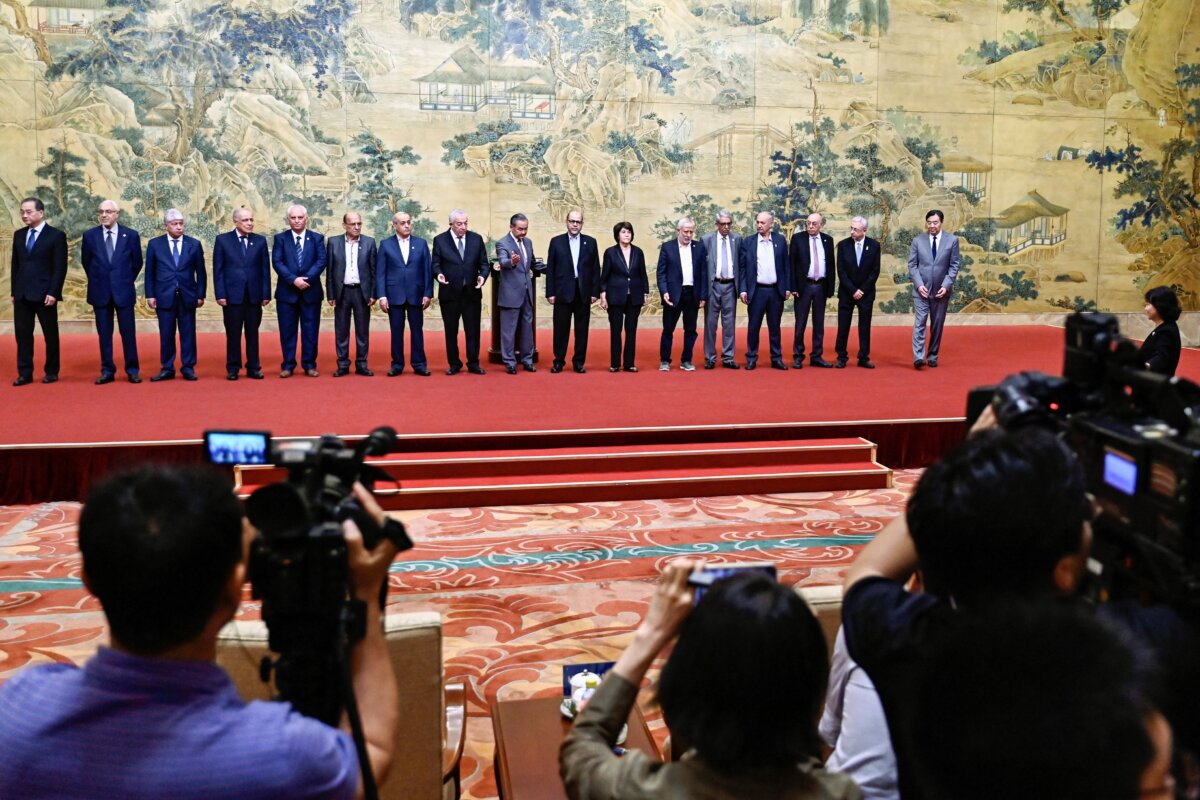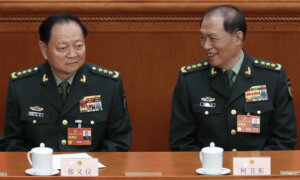News Anaylsis
Palestinian factions, including Fatah and the terrorist organization Hamas, have agreed to form a government after talks hosted by Beijing. Analysts believe the Chinese regime is forging closer ties with terrorist groups in the Middle East to expand its anti-U.S. alliance.
On July 23, following two days of reconciliation, 14 Palestinian factions co-signed a declaration in Beijing on “ending division and strengthening Palestinian unity” and establishing a “provisional national reconciliation government” in the reconstruction of post-war Gaza.
Wu Zuolai, a China affairs columnist and political commentator based in the United States, believes Beijing is now helping to unite terrorist organizations, a move with significant implications. “Just as it recognizes the Taliban in Afghanistan as the legitimate government, it is expanding its rear [guard] in the Middle East in the same way,” he said.
“The CCP is pushing forward a united front with the terrorist forces in the Middle East, in a long-term and sinister plan to confront the U.S. and the Western world,” he added.
This new round of mediation was initiated by the Chinese Communist Party (CCP) to seek compromises among the Palestinian factions, especially between the rival forces of Hamas and Fatah in the long-standing conflicts in Gaza and the West Bank of the Jordan River.
In April, the CCP hosted the first round of talks between the rivals, but it did not yield substantive results. Subsequently, the second round of talks, scheduled for June, was postponed.
Since Hamas seized the Gaza Strip in 2007 and expelled Fatah, Palestinians have been locked in a prolonged war.
On the same day of the announced agreement, Israeli Foreign Minister Yisrael Katz posted on X that “Hamas and Fatah signed an agreement in China for joint control of Gaza after the war. Instead of rejecting terrorism, [Fatah leader] Mahmoud Abbas embraces the murderers and rapists of Hamas, revealing his true face.”
“In reality, this won’t happen because Hamas’s rule will be crushed, and Abbas will be watching Gaza from afar. Israel’s security will remain solely in Israel’s hands,” the post reads.
Shi Shan, a senior contributor to the Chinese edition of The Epoch Times, said that the CCP is not concerned about regional peace. On the contrary, it is pulling strings among various forces in the Middle East.
Mr. Shi said the CCP is trying to exert influence over terrorist organizations by providing financial assistance or other means and using them to play a role in the CCP’s time of need.
Mr. Wu agreed with the assessment, adding that the terrorist organizations are using the financial and material resources given by the CCP to achieve their objectives.
“Now Hamas’s army has been severely weakened in a war with Israel and could be wiped out at any time, so the CCP is keen on reconciling these Palestinian factions into an indivisible whole against Israel and the West,” he said.
“On the other hand, Hamas needs the support of the CCP to strengthen itself, so they use each other. ... Once Hamas unites with Fatah, the terrorist organization may be preserved and possibly legitimized, which would be conducive to boosting its might.”
In response to the agreement, U.S. State Department spokesman Matthew Miller said in a July 24 press briefing that the department had not yet reviewed the text of the Beijing agreement. Mr. Miller reiterated that Hamas is a U.S.-designated terrorist organization, and Washington believes the group should not be involved in the post-war governance of Gaza.
Mr. Wu believes that the CCP’s moves to consolidate forces in the Middle East have gained urgency with the possibility of former President Donald Trump’s return to the Oval Office.
Nevertheless, although the CCP’s tactics of threatening the world have grown more sophisticated, Mr. Wu believes they are hardly sustainable as the communist regime struggles to survive the economic recession.
Mr. Shi believes the current global political environment will not allow the CCP to do whatever it wants in the international arena.
“I think the next dilemma facing the CCP will be an intense confrontation between China and the United States. There will be a lot of changes in international relations, and I think they will all revolve around the China–U.S. confrontation,” he said.
Xin Ning contributed to this article.












